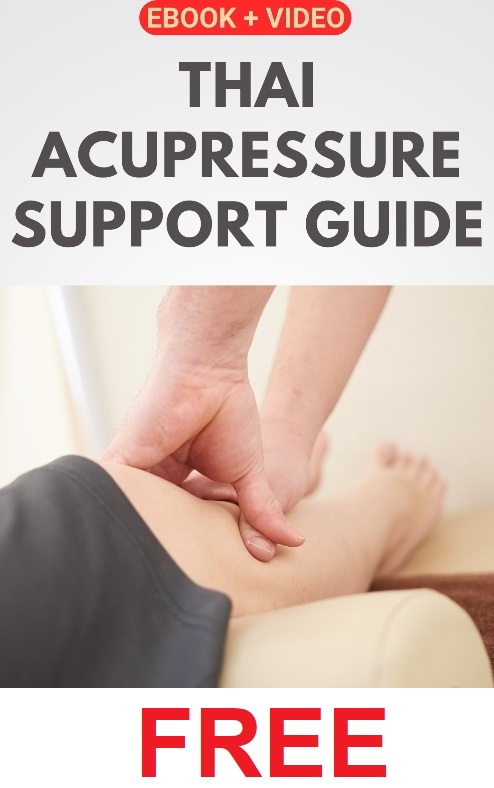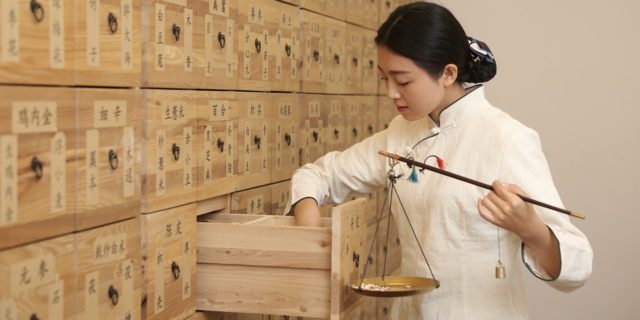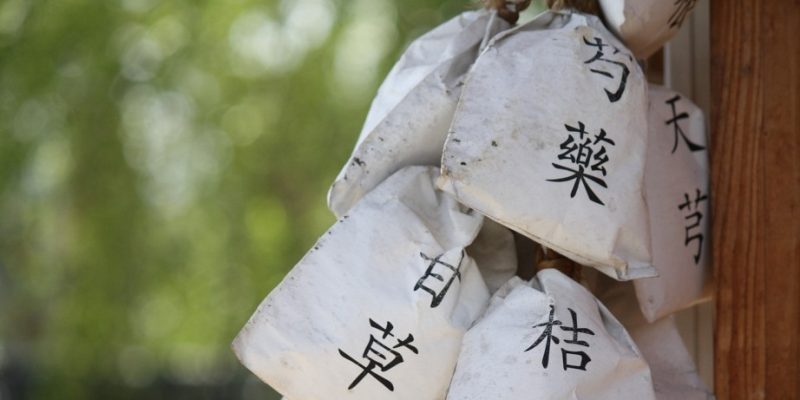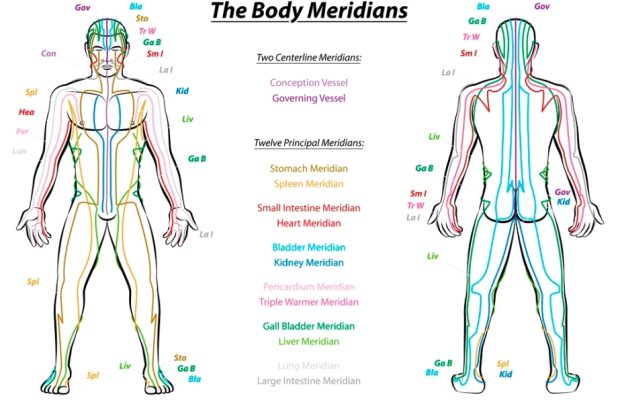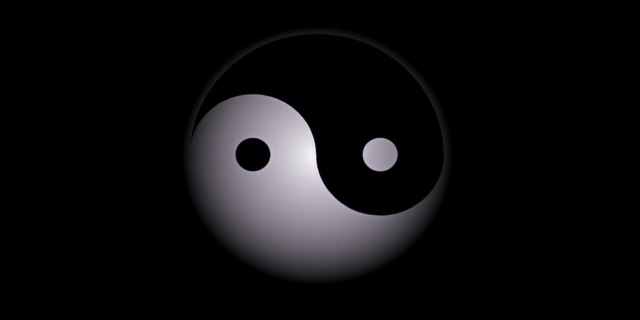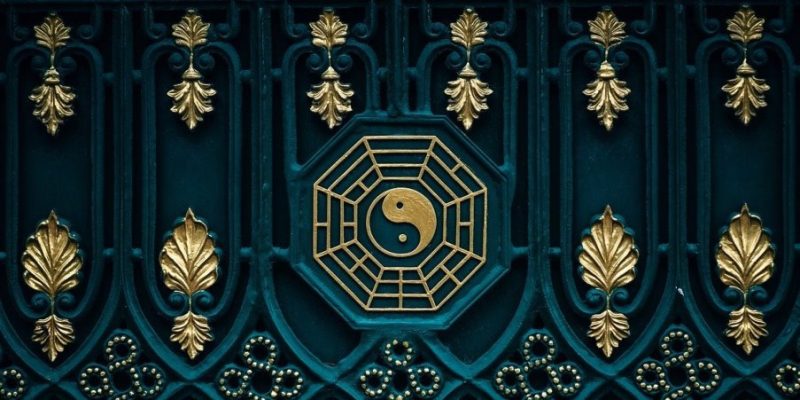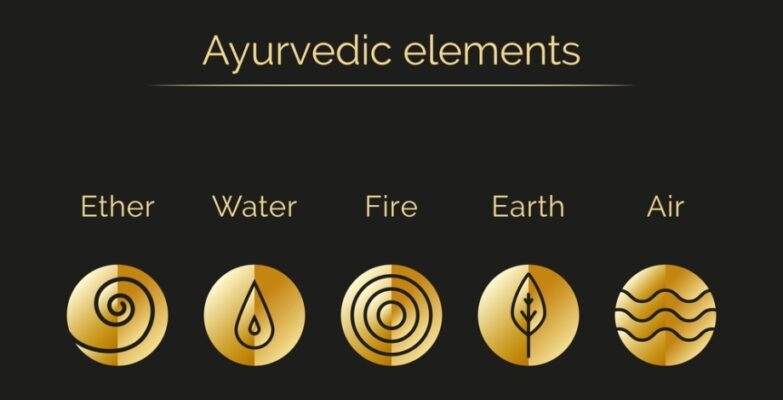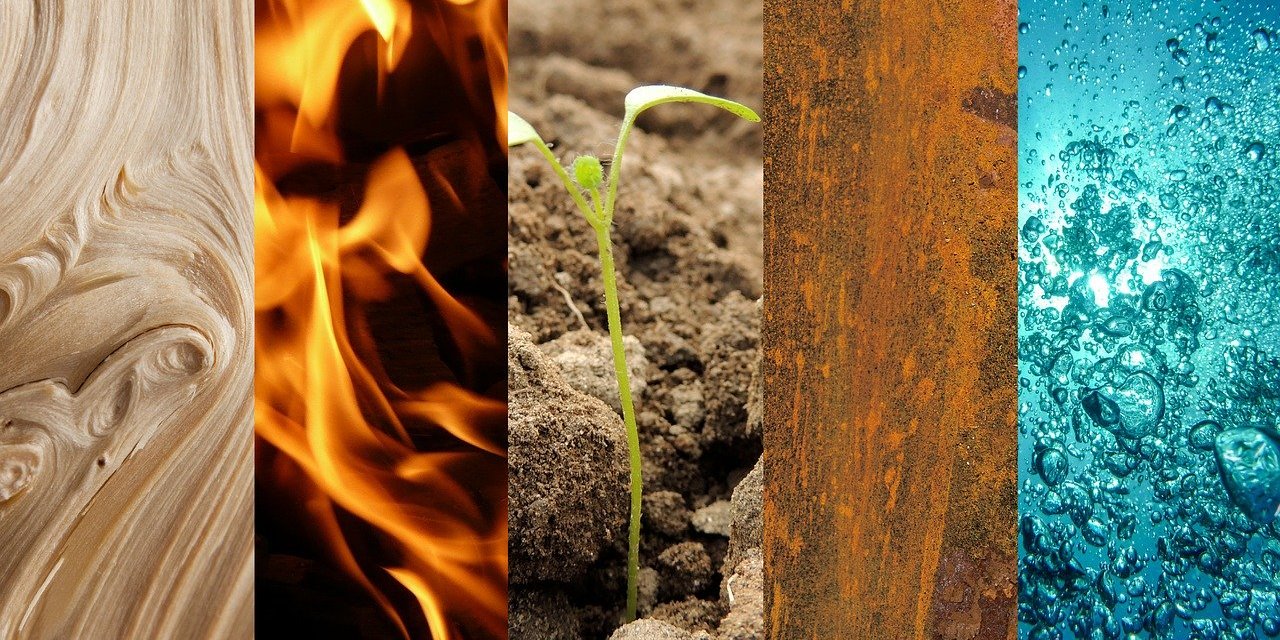
The Five Elements are a Chinese model that organizes all natural phenomena into five groups (or patterns) according to certain elements in nature. These five groups are fire, water, earth, wood and metal, and are of great importance in Traditional Chinese Medicine (TCM).
Each of the five element groups includes categories related to certain properties, such as for instance being connected to a season, a direction, stage of growth and development, an internal organ or organs, emotions, aspect of the mind, tastes, and color, and so on.
Balancing the Elements
An imbalance in one or more of the Five Elements can give rise to physical or mental complaints. The Five Elements show us how the structures and systems in our bodies are connected to each other and how we relate to our environment and the natural world.
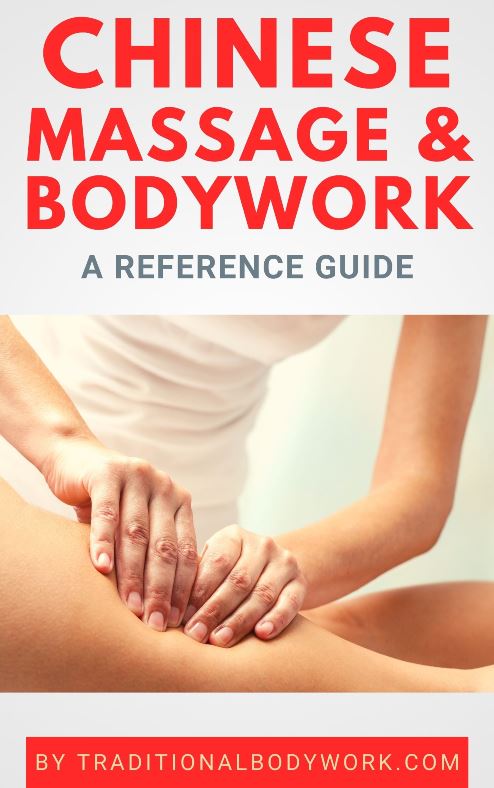
Moreover, they continually evolve and change within a human being, and some elements become stronger and more dominant (or vice versa) at different stages in our lives and for that need “maintenance” depending on our situation.
The Five Elements are all connected: wood feeds fire, fire makes earth, earth creates metal, metal holds water, and so on. Each element controls another element and is controlled by another element. The system is connected, moving, and constantly in a process of seeking balance.
All TCM treatments are based on stimulating or mitigating a certain energy or transferring energy from one element to another to create balance again. Note that the idea of seeking balance relates strongly to the well-known Yin-Yang concept in TCM.
Understanding a body system, body part, an emotional process or even a whole personality in respect to an excess or lack of a specific element quality, is key in diagnosis, and subsequently designing a treatment plan to stimulate of mitigate a certain element.
Fire Element Example
We’ll take the Fire Element as an example to clarify how the Five Elements may work in relation to a person. In TCM, a person is considered of a certain Element type, that is, one type that is dominant. Note that the other elements always work in a person also.
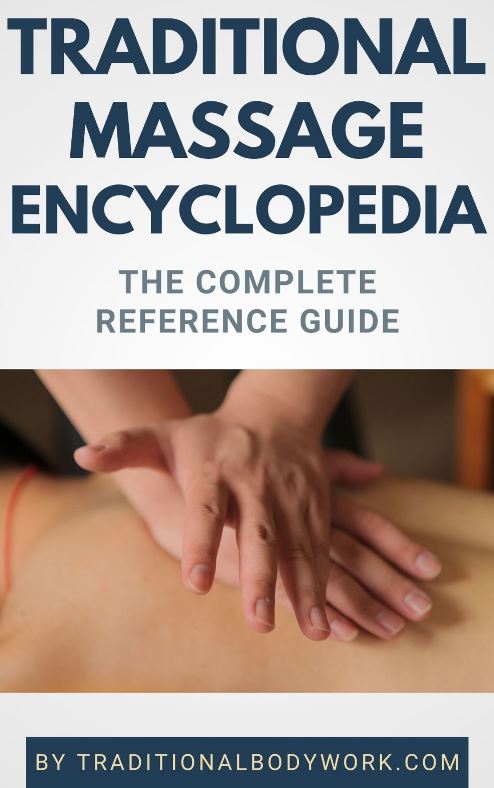
As for the organs the Fire Element is connected to the Heart and Small Intestine, as for the Season it’s the Summer, the Weather is Hot or Warm, the Direction is South, the Emotion is Joy, Intimacy and Connection, the Color is Red, Tastes are Bitter and Burned, Sound is Laughing, the Sense organ and Sensation is the Tongue and Taste, the Body Tissues are the Vessels.
It means that such a person is usually energetic, passionate, charismatic, dramatic, but can be emotionally volatile. These types of persons like to talk, are eloquent and expressive, but then again can talk too much or too fast. They often lead other people because they can “put things on fire.”
The season Fire types like most is the Summer because it corresponds to them. Warmth and heat is about joy, fun, intimacy and connection. When the Fire element is out of balance, for instance has “too much Fire,” Fire types can get nervous, have insomnia or experience palpitations. They can easily “overheat” and suffer from skin problems. As the heart is the organ connected to the Fire type, they can develop heart or circulatory problems more easily.
Knowing the problems a Fire type can develop, a certain lifestyle and nutritional diet fits best for this type of person. He or she should take time to be alone to calm down and balance its sociable nature. This can be done by taking walks in nature, write or meditate, for instance.
Fire types should also plan ahead and prioritize, else they can get confused wanting to do too many things at the same time. Regularity is important and that includes regular, moderate-size meals.
As for food, a person with a predominant Fire character should avoid nutrition that is too spicy or over-heating (avoiding too much Fire, that is, “hot” food) and include bitter and cooling foods to balance or mitigate his or her inherent Fire personality.


